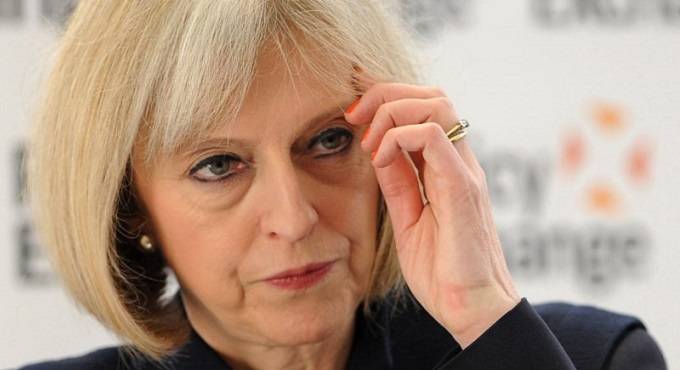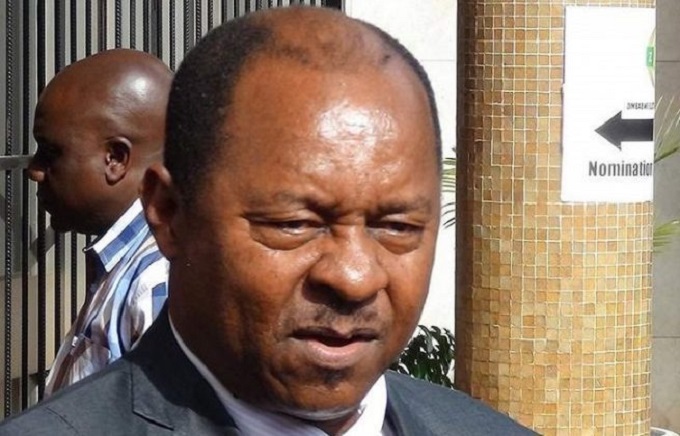May won’t lead Conservatives into next election over Brexit

Prime Minister Theresa May has said she will not lead the Conservative Party into the next general election.
She said the party would prefer to “to go into that election with another leader”, as she arrived in Brussels for an EU summit.
It confirms what she told MPs ahead of a confidence vote triggered by MPs angry at her Brexit policy.
May won the vote but has vowed to listen to the concerns of the 37 percent of Tory MPs who voted against her.
The next scheduled general election is in 2022.
Mrs May said: “I’ve said that in my heart I would love to be able to lead the Conservative Party into the next general election but I think it is right that the party feels that they would prefer to go into that election with another leader.”
Asked whether she would quit after Brexit, she declined to discuss dates but added: “What I’m clear about is the next general election is in 2022 and I think it’s right that another party leader take us into that general election.”
The prime minister said she hoped to “assuage” the concerns of Tory MPs who voted against her by seeking legal “assurances” from EU leaders that the backstop plan to prevent the return of a hard border in Northern Ireland would be temporary.
Critics say Mrs May’s backstop plan will keep the UK tied to EU rules indefinitely and curb its ability to strike trade deals. The EU says it will not renegotiate the backstop, but may agree to give greater assurances on its temporary nature.
It seems unlikely that would win over enough support for her Brexit plan to have a realistic chance of getting through the House of Commons, with tensions heightened in the Conservative Party in the wake of Wednesday evening’s confidence vote.
Downing Street confirmed on Thursday that the MPs’ “meaningful vote” on the deal will not now take place before Christmas – it was abandoned this week when Mrs May admitted it would have been “rejected by a significant margin”.
The PM’s spokeswoman said it would happen “as soon as possible in January”.
The prime minister’s admission that she’ll leave office before the next election fended off yesterday’s clamour from a chunk of her party to go.
But it hardly makes things easier from today onwards.
Just as she is desperate to get a time limit on the controversial “backstop”, she now has a limit on her time in office. Now it is public, in her own words, questions won’t just be about her impossible Brexit agreement but also about how, and when, she will finally go.
Earlier this week, the prime minister travelled to meet EU leaders, including German Chancellor Angela Merkel and Dutch Prime Minister Mark Rutte, to raise the issues surrounding the withdrawal agreement at Westminster one-on-one. But a trip to meet the Irish Taoiseach Leo Varadkar had to be cancelled because of the leadership vote.
At Thursday’s summit, Mrs May had the opportunity to spell out face-to-face the problems she faces to leaders of all the other 27 member states.
The EU leaders will then consider what could be done – without Mrs May in the room.
Theresa May said she had listened to the concerns of the MPs who had voted against her, adding that she knew what was needed to get her deal “over the line”.
“I’ve already met [Irish Premier] Leo Varadkar, I’m going to be addressing the European Council later and I’ll be showing the legal and political assurances that I believe we need to assuage the concerns that MPs have on this issue.”
She added: “I don’t expect an immediate breakthrough but what I do hope is that we can start work as quickly as possible on the assurances that are necessary.”
Austrian Chancellor, Sebastian Kurz, whose country holds the rotating six-month presidency of the European Council, said: “I believe that Theresa May knows that there can be no reopening of the withdrawal agreement.”
But he said that it might be possible to “provide a little better explanation or definition or go into detail” on the provisions of the agreement.
“Hopefully, that will allow Theresa May to bring a vote in January and obtain a majority,” he said.
“If the British prime minister thinks one or another additional explanation can be helpful before she brings it to a vote, then we should do that.”
Asked what concessions might succeed in winning over Mrs May’s domestic critics, Mr Kurz said: “It is difficult to judge, because many of the sceptics do not argue in a way that is really rational.”-AP












Comments